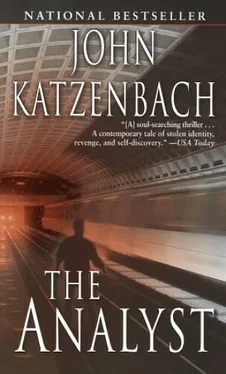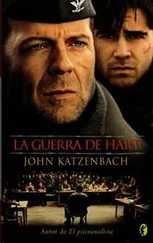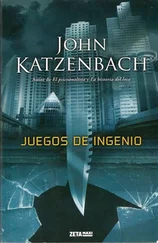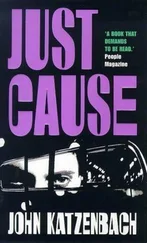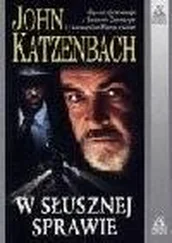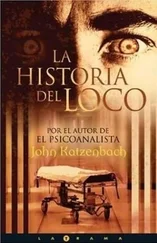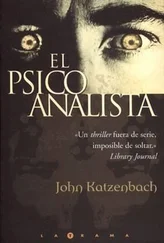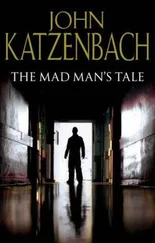Ricky opened another file from that time, and spotted his handwritten notes. He pulled these out and tried to connect the name on the file with the words he had scrawled down. But the faces seemed vaporous, wavy, like distant heat above a highway on a hot summer day. Who are you? he asked himself. Then, he added a second question: What became of you?
A few feet away, the records office clerk dropped a pencil from his desk, and with a small cursed obscenity, reached down for it.
Ricky eyed the man for a moment, as the clerk bent back to the computer screen glowing in front of him. And, in that second, Ricky saw something. It was almost as if the way the man’s back was hunched over slightly, the nervous tic he had of drumming a pencil against the desktop, the narrow way he slumped forward, all spoke a language Ricky should have understood from the first minute, or at least in the way the man’s hand had clawed up the money Ricky offered him. But Ricky was only a tourist in this particular land, and that, he thought, explained why it had taken him some time to understand. He quietly pushed away from his table and stepped over behind the man.
“Where is it?” Ricky demanded in a low voice. As he spoke, he reached out and gripped the man’s collarbone tightly.
“Whoa! What?” The clerk was taken by surprise. He tried to shift about, but the pressure of Ricky’s fingers digging into the flesh and bone limited his movement. “Ouch! What the hell?”
“Where is it?” Ricky repeated, more sharply.
“What are you talking about? Damn it! Let me loose!”
“Not until you tell me where it is,” Ricky said. By now he’d lifted his left hand and also seized the man’s throat, beginning to squeeze. “Didn’t they tell you I was desperate? Didn’t they tell you how much pressure I was under? Didn’t they tell you I might be unstable? That I might do anything?”
“No! Please! Ouch! No, damn it, they didn’t say that! Let me go!”
“Where is it?”
“They took it!”
“I don’t believe you.”
“They did!”
“All right. Who exactly took it?”
“A man and a woman. Just about two weeks ago. They come in.”
“The man was well dressed, paunchy, said he was a lawyer? The woman was a real looker?”
“Yes! Them. What the hell’s this all about?”
Ricky released the clerk, who instantly pushed back from him. “Jesus,” the man said, rubbing his collarbone. “Jesus, what’s the big deal?”
“How much did they pay you?”
“More than you did. A whole lot more. I didn’t think it was so goddamned important, you know. It was just one file from way long ago that nobody’d even looked at for two decades. I mean, what’s the trouble with that?”
“What did they tell you it was for?”
“Guy said it was part of a legal case, involving an inheritance. I couldn’t see that, you know. The folks come to that clinic, they don’t got much in the way of inheritance, generally speaking. But the man gave me his card, told me he’d return the file when they were finished with it. I didn’t see the problem.”
“Especially when he handed you some cash.”
The clerk seemed reluctant, then he shrugged.
“Fifteen hundred. In new hundreds. Peeled ’em right off a wad, like some sort of old-time gangster. You know, I got to work two weeks for that sort of money.”
The coincidence of the amount was not lost on Ricky. Fifteen days’ worth of hundreds. He glanced over at the stack of files and despaired at the hours of the day he’d already wasted. Then he looked back at the clerk, narrowing his glare. “So the file I need is gone?”
“I’m sorry, doc, I didn’t realize it was some big deal. You want the guy’s card?”
“I’ve already got one.” He continued to stare at the clerk, who shifted about in his seat uncomfortably. “So they took the file, and paid you off, but you’re not that stupid, are you?”
The clerk twitched slightly. “What do you mean?”
“I mean, you’re not that stupid. And you haven’t worked in a records office for all these years without learning a little bit about covering your tail, right? And so, one file in all these stacks is missing, but not before you made sure of something, right?”
“What are you talking about?”
“You didn’t give up that file without copying it, did you? No matter how much the guy paid you, it occurred to you that maybe, just maybe, the someone else who just might come looking for it might have more juice than the lawyer and the woman, right? In fact, maybe they even told you someone might come in here searching for it, isn’t that right?”
“They might have said that.”
“And maybe, just maybe, you thought you could make another fifteen hundred or even more, if you had the thing copied, correct?”
The man nodded. “You gonna pay me, too?”
Ricky shook his head. “Consider the payment the fact that I don’t call your boss.”
The clerk seemed to sigh, measuring this statement, finally seeing in Ricky’s face enough anger and stress to believe the threat in its entirety. “There weren’t a whole helluva lot in the file,” he said slowly. “An intake form and a couple of pages of notes and instructions attached to a diagnosis form. That’s what I got copied.”
“Hand them over,” Ricky said.
The clerk paused. “I don’t want any more trouble,” he said. “Suppose someone else comes looking for this stuff…”
“I’m the only other person,” Ricky said.
The clerk bent down and opened a drawer. He reached in and produced an envelope that he handed to Ricky. “There,” he said. “Now leave me alone.”
Ricky glanced inside and saw the necessary documents. He resisted the urge to pore over them right there, telling himself that he needed to be by himself when he probed his past. He stood, slipping the envelope into his jacket. “This is it?” he asked.
The clerk paused, then reached down and plucked another, smaller envelope from the desk drawer. “Here,” he said. “This goes with it. But it was attached to the outside of the file, you know, clipped on. I didn’t give it to the guy. I don’t know why. Figured he had it, because he seemed to know all about the case.”
“What is it?”
“A police report and a death certificate.”
Ricky breathed in sharply, filling his lungs with the stale hospital basement air.
“What’s so important about some poor woman who showed up at the hospital twenty years ago?” the clerk abruptly asked.
“Someone made a mistake,” Ricky answered.
The clerk seemed to accept this explanation. “So now someone’s got to pay?” he asked.
“It would seem so,” Ricky replied, as he gathered himself to leave.
Ricky walked out of the hospital building, still feeling a tingling in his hands, especially in the fingertips that he’d dug deeply into the clerk’s collarbone. He was unable to recall a moment in his life when he’d used force to accomplish something. He thought he lived in a world of persuasion and discussion; the idea that he’d used physical strength to threaten the clerk, even if so modestly, told him that he was crossing some sort of odd barrier, or stepping past some unspoken point of demarcation. Ricky was a man of words, or, at least, had thought so until he’d received the letter from Rumple-stiltskin. In his pocket was the name of the woman he’d treated at a moment of transition in his own life. He wondered if he had reached another such point. And, in the same moment, he wondered whether he was standing at the edge of the road to becoming something new.
He walked toward the Hudson River, heading through the huge hospital complex. There was a small courtyard not far from the front of the Harkness Pavilion, a branch of the facility, one that catered to the particularly wealthy and particularly sick. The buildings were huge, multistory brick and stone edifices, that spoke of solidity and sturdiness, standing defiant against the many faces of infinitesimal and puny disease organisms. He remembered the courtyard from years before as a quiet place, where one could sit on a bench and allow the city noises to fade away, alone with whatever beast of a problem yapped and gnawed at one’s insides.
Читать дальше
